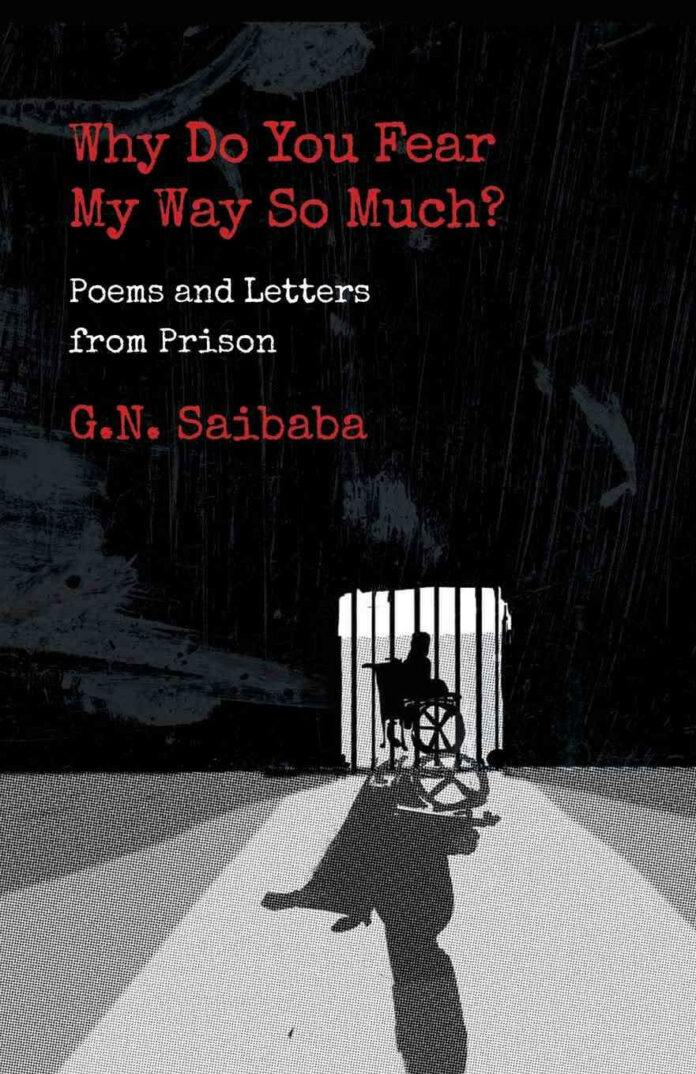G.N. Saibaba was formerly an English professor at a University in Delhi, India. Saibaba was imprisoned under India’s Unlawful Activities Prevention Act for the past ten years. This act utilizes vague language to police and censor people in India who speak or advocate against governmental practices and deems them as terroristic.
Saibaba was incarcerated under this act. As well as being a professor, Saibaba was heavily involved in his community, serving as a minority community activist and advocating for the rights of under-represented communities in India. Knowing this as well as his influence as a professor, the Indian government imprisoned him for ten years. It is important to note that there was no tangible evidence against Saibaba; his imprisonment was largely based on assumptions by the Indian government.
Saibaba is 90 percent disabled, suffering from various health conditions that worsened from his time in prison, where he was repeatedly denied proper medical care. Saibaba spent his time in prison writing and expressing his feelings through his art. Saibaba spent time writing letters and poems where he expressed his desire to not only be released from prison but to also return back to the classroom, doing what he loves.
As of early March of this year, Saibaba has been acquitted, however, the threat of rearrest is still imminent. As Saibaba spends time recuperating and focusing on his health, he and his close confidants have expressed the importance of spreading awareness of his imprisonment and the conditions that allowed him to be incarcerated in the first place.
Saibaba is only one example of a variety of academics and scholars that have become imprisoned, and face the threat of imprisonment or termination of their jobs in academia. Scholars at Risk (SAR), an international network that works with universities, focuses on the advocacy of academics across the world that have been censored and punished for their activist efforts. Muhlenberg is partnered with SAR; having students come together to advocate for various scholars. On Apr. 15, there will be students tabling and orchestrating events corresponding to their respective scholars, advocating for their release from prison.
To properly honor and advocate for Saibaba, here is an excerpt of one of his poems written from when he was incarcerated, titled “A Letter to Dear Students and My Fellow Teachers” where he writes about and expresses his genuine desire to be back in the classroom through the art form he was most familiar with: writing.
I dream of being in my classroom
day and night fettered behind
the strong iron beams
of my tiny solitary prison cell.
I see you, talk to you
and hug you by the force
of my frail and challenged life
in my unchained mind’s eye
as the desire for freedom
flows through the sinews
and veins of my bloodstream
even as I am caged
far away from you.
Teaching is my forte,
breath and life, you know
I embraced literature
for it clasps us with our troubled histories,
philosophies and economics
of pangs of pain, tears,
fears and hopes
for a bright new day.
Shinam ‘25 is a political science and sociology major at Muhlenberg. She is immensely excited to be apart of the Weekly staff! When she isn’t writing, she can be found reading a book or watching a comfort show with her favorite fast food!























